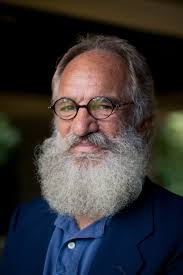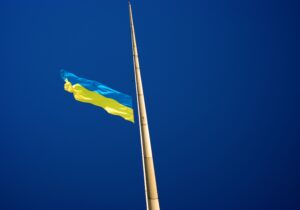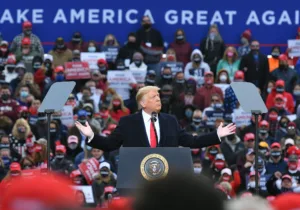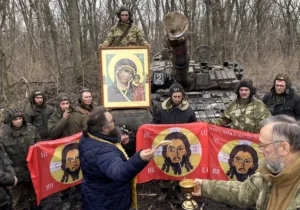I write as a theologically orthodox Protestant who was challenged and nurtured by the thinking and writings of both John Paul II and his successor, Benedict XVI. Challenged and nurtured, indeed, and surely spoiled as well. Both reflected a faithful stewardship of the Christian moral tradition, being careful to never encourage categories of thought that could lead the faithful astray from the established teachings of the Roman Catholic Church. One only wishes that Benedict’s successor were so inclined.
More recently, we are witness to the serious issues arising directly out of Pope Francis’s ethical framing. One such example is the document Fiducia Supplicans, issued and approved by Francis in mid-December, which offers “pastoral blessing” to same-sex couples. Hereby the pope has encouraged thinking on a critically important ethical matter that places him – and those sympathetic – outside the historic Christian tradition. Controversy and confusion, not surprisingly, have been swirling worldwide since the release of Fiducia Supplicans.
Then, in recent days, Francis issued public remarks that Ukraine, because it faces possible defeat in its war with Russia, should have the courage to negotiate for a peace and the war’s end. These remarks were part of an interview with the Swiss broadcast system RTS (Radio Télévision Suisse) in February, an advance transcript of which was made available by Reuters on March 9. The Pope urged both parties warring in Ukraine to “not be ashamed to negotiate before things get worse.” “Negotiations are never a surrender,” he declared. “Negotiations take courage,” Francis insisted, because “war is madness; it is madness.”
Indeed, tell that to the Russians, to Vladimir Putin, and to the forces of tyranny, who through perverse aggression, have invaded a neighbor state unjustly and committed atrocities. Ukraine is an independent, internationally recognized state with its own constitution (since 1996). It is a state, moreover, that was guaranteed security in 1994 through the Budapest Memorandum – an accord signed by Ukraine, Great Britain, the U.S., and, yes, the Russian Federation – with backing and security promises from the United Nations Security Council. But with repeated violations for over a decade by one of the four signatories, Russia, we still await “immediate U.N. Security Council action.” Indeed, the war Putin started is sheer madness.
In the interview, Francis was also asked about the Israel-Hamas war. The pope’s response was simply to lay blame on both sides, without qualification. “War is made by two, not one. The irresponsible ones are these two who wage war.” Wholly absent from his remarks was any moral distinction between the horrors unleashed by Hamas and the right of Israel to defend itself against such barbarism.
As it applies to Ukraine, Francis insisted, “The word ‘negotiate’ is a courageous word.” In that vein, “When you see that you are defeated, that things are not going well, it is necessary to have the courage to negotiate. . . Negotiate in time; look for some country that can mediate. Today, for example in the war in Ukraine, there are many who want to mediate. Turkey has offered itself for this.” This, of course, is the same pope who two years ago said that NATO, with its eastward expansion, was “barking” at Russia’s door.
We may leave aside for the moment Francis’ suggestion that Turkey is a credible mediator and consider the moral character of his claims. While the Vatican traditionally has maintained a position of diplomatic neutrality, it would be wise, from a Christian vantage point, to temper our convictions – and those of the present pope – with two perspectives. One of these is the witness of the wider Christian moral tradition, in which the wisdom of just-war moral reasoning has been nurtured. Thomas Aquinas’ concise but helpful summary of whether war is ever permissible (Summa Theologica II-II Q. 40) remains a starting point for most serious just-war thinking. Aquinas’ conclusion needs reiterating: it is sometimes – on sad occasions – permissible to go to war.
The second perspective that counsels us is found in the Catholic Catechism. Under the heading “Avoiding War,” the Catechism states: “as long as the danger of war persists and there is no international authority with the necessary competence and power, governments cannot be denied the right to lawful self-defense” (no. 2307). Under the heading “Safeguarding Peace,” the Catechism qualifies the nature of a peace being sought or negotiated. “Peace is not merely the absence of war, and it is not limited to maintaining a balance of powers between adversaries.” Contrary to Francis’ thinking, peace is not merely the absence or cessation of war; there is a peace that is unjust (as the Mafia, drug cartels, and terrorists remind us). Hence, to “negotiate” is not always the moral thing to do. “Peace is the work of justice,” in the language of the Catechism (no. 2304); thus, to negotiate toward an unjust peace is to succumb to evil and invite further calamity. Surely, the Second World War taught us invaluable lessons about appeasement and the failure to deter and resist sociopolitical evil.
It should be pointed out that the reaction among European leaders to the pope’s remarks was immediate, and it was strong. Ukrainian foreign minister Dmytro Kuleba declared a day after the pope’s remarks were published, “Our flag is a yellow and blue one. This is the flag by which we live, die, and prevail. We shall never raise any other flags.” At the same time, Kuleba challenged the pope to visit Ukraine and witness the present tragedy for himself, in order “to support over a million Ukrainian Catholics, over five million Greek Catholics, all Christians, and all Ukrainians.”
Radoslaw Sikorski, the Polish foreign minister, noted the obvious: “How about, for balance, encouraging Putin to have the courage to withdraw his army from Ukraine.” It would naturally follow, then, that “[p]eace would immediately ensue without the need for negotiations.” And Edgars Rinkēvičs, president of Latvia, framed the matter succinctly, as one might expect from the citizen of a nation long suffocated by Russian imperialism: “One must not capitulate in the face of evil, one must fight it and defeat it, so that the evil raises the white flag and capitulates.”
In the end, the pope’s undergirding assumptions regarding war and peace – that “war is made by two, not one” and that even an unjust peace is preferable to war – fly in the face of just-war moral reasoning and Christian wisdom, not to mention basic justice. Surely, the Ukrainian foreign minister’s response to Francis was fitting: “The strongest is the one who, in the battle between good and evil, stands on the side of good rather than attempting to put them on the same footing and call it ‘negotiations.’”
What remains to be seen is whether Western nations, with the U.S. in the forefront, are capable of standing on the side of the good and deterring evil. The current global disorder requires that we decide.






